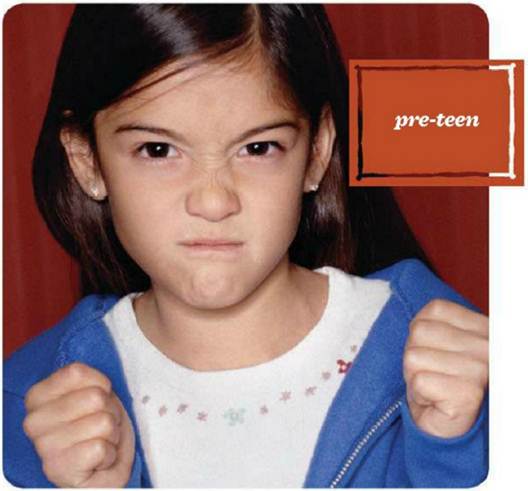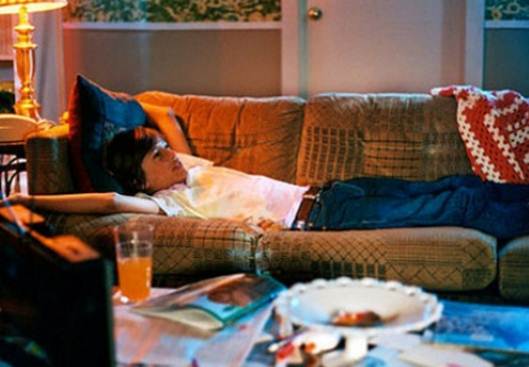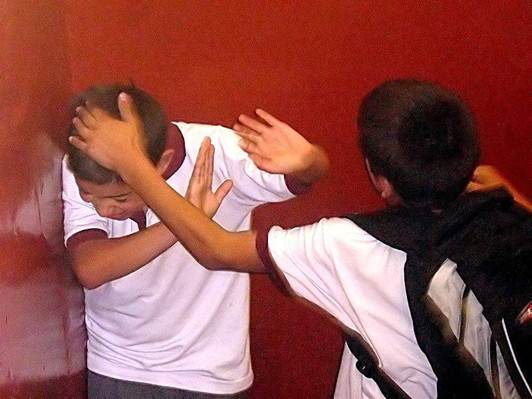Spot those signs of aggression and
anger in your child now, before it’s too late!

A 14-year-old was brutally killed on a busy
street in Mumbai by some 25 teenagers because he opposed one of his classmates
for sending a dirty SMS to one of their common friends. A Class 9 student
stabbed his teacher to death in a school in Chennai because she scolded him in
front of his classmates. While these extreme cases of teen rage (not
necessarily only in the metros) that you regularly get to read about in the
newspapers or magazines these day are shocking if not downright frightening,
the fact is, this kind of anger and aggression (particularly at this age) does
not originate overnight. There are early signs – especially in the tween years
– that you, as parents, can spot easily if you observe carefully. And this is
crucial in preventing the anger that’s simmering under the surface from boiling
over. Experts from across the country tell us what exactly those early signs
are, the causes, and also some solutions that you can implement. Plus, some
case studies that they’ve dealt with first-hand.
Passive aggression

Symptoms:
Child threatens to kill himself, and doesn’t talk much.
Cause:
Passive aggression. Also, lack of communication within the family. Parents
these days are busy, and children are either in day-boarding schools, or are
looked after by grandparents, or are looked after by grandparents, or day care
assistants. If a child is exposed to many varied environments – each with their
own dos and don’ts – it can lead to confusion.
Solution:
“It is very important to stay connected with your child even if you are busy.
Remember that the child works on the ‘pleasure principle’. He doesn’t know what
is right or wrong. The lack of consistency in parenting leads to a lot of
confusion in kids. If your child is threatening you, either you are too strict,
or you are agreeing to every demand,” says Gaurai Uddanwadikar, Founder,
Counseling India, Bengaluru. She shares the case of an 11-year-old boy who
threatened to commit suicide if his demands were not fulfilled. “His father is
extremely demanding, as he has himself grown up in a strict environment. He
wanted his son to be the best performer right from kindergarten. While the
child is good, he is not the best academically, which has led to this
aggression. I know he is not suicidal by nature; he is only demanding an
acceptance of who and how he is.”
Fickleness and depression

Symptoms:
Frustrated, likes to be alone, is social but behaves in a weird way with the
family.
Cause:
Accumulated stress. The child is irritated and is angry all the time. Nuclear
families, someone or the other is always around to listen to kids. Today, with
moms and dads being busy with their jobs, kids are not able to express their
frustrations at the right time.
Solution:
“Since the present trend of nuclear families and working moms is not going to
change, we need to find solutions within this environment. For parents it’s
important to give sufficient time to their kids. If a mom has long working
hours, dads must fill the gap,” says Dr. Anamika Papriwal, psychologidt at
Rungta Hospital, Jaipur. She shares the case of a 10-year-old girl from a
broken family who physically attacked her mom. After a few sessions, Dr.
Papriwal learned that the couple didn’t share a harmonious relationship, and
that the child was witness to all the arguments. In order to shield the child,
the parents tried to engage her in computer games, which somehow led her to
access adult sites. The child was initially mortified, and started imagining
people doing the same to her. When her father tried to comfort her, she became
infatuated by him, and developed a feeling of dislike for her mother. The child
is currently in counseling.
Conduct discorder

Symptoms:
Extremely restless, hurts pets, and kills insects.
Cause:
Conduct disorder, which could be related to a lot of factors. It could be that
the parents are not functioning as role models, and that there is a high degree
of expressed emotions within the family, which the child is acquiring by
observation. In some cases kids don’t like to be social, or are introverts – which
can lead to an anti-social personality disorder.
Solution:
“For such extreme case, medicine for the child and counseling – first with the
parents, then with the child – are a must. If there is some suppressed emotion,
the medicines release it gradually, and later, counseling helps in
understanding the root cause,” says Dr. Tirthankar Dasgupta, Founder, Moner Alo
Mental Clinic, Kolkata. He is handling an extreme case of bi-polar disorder,
where an 8-year-old girl regularly bites or beats her father. She goes into
manic depression. After a few sessions of counseling, the doctor got to know
that her mother committed suicide by immolating herself a few years ago, and
the child was the prime witness. Those images are deeply impressed in her mind.
Also, since she had seen her parents fighting regularly, she developed an
extreme dislike for her father. Her treatment started with medicines and
counseling both.